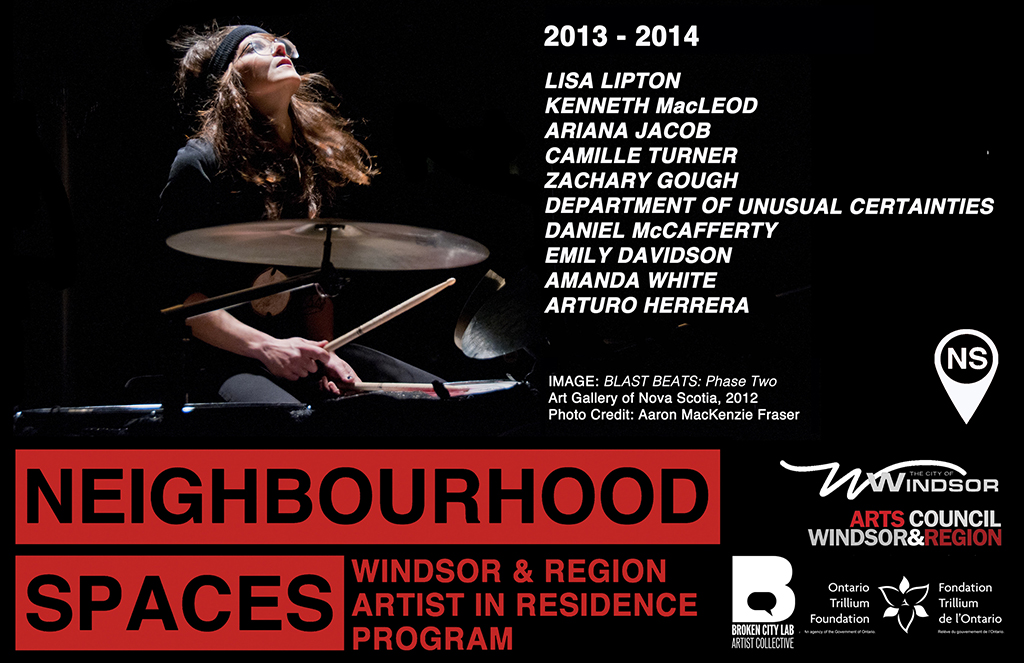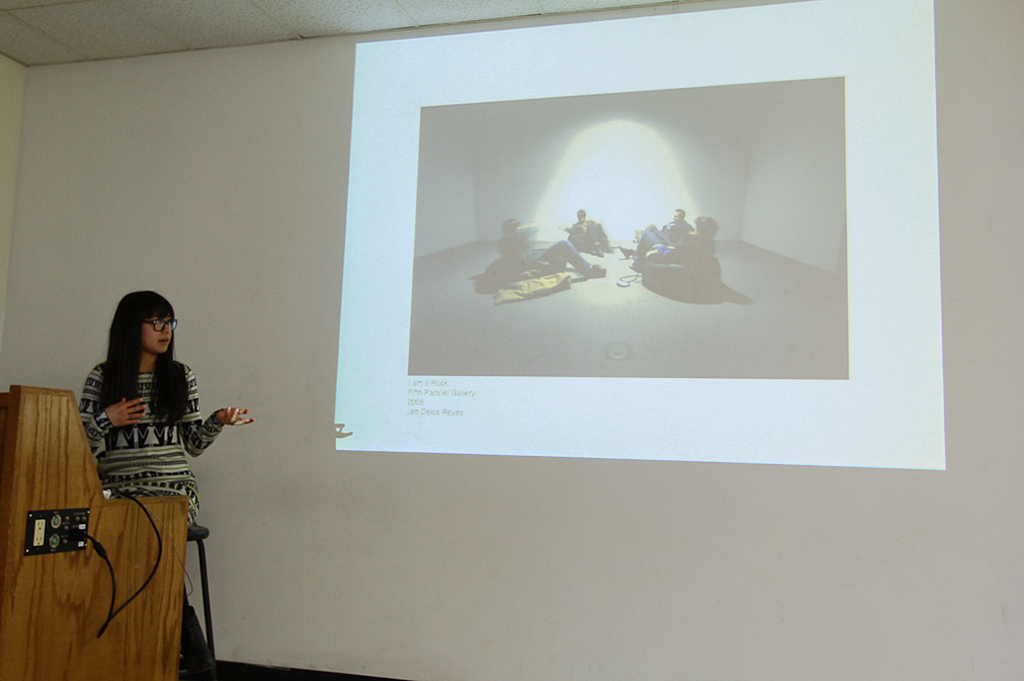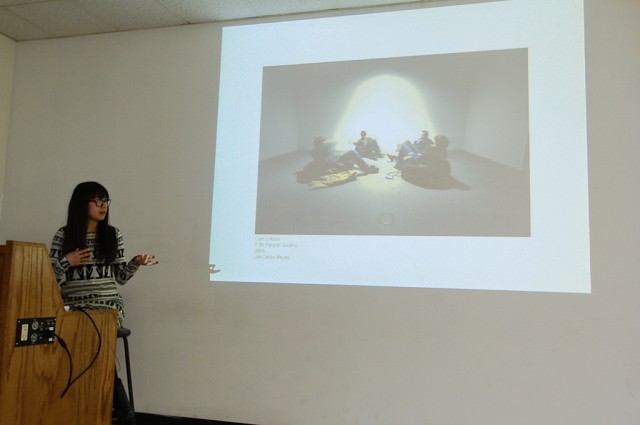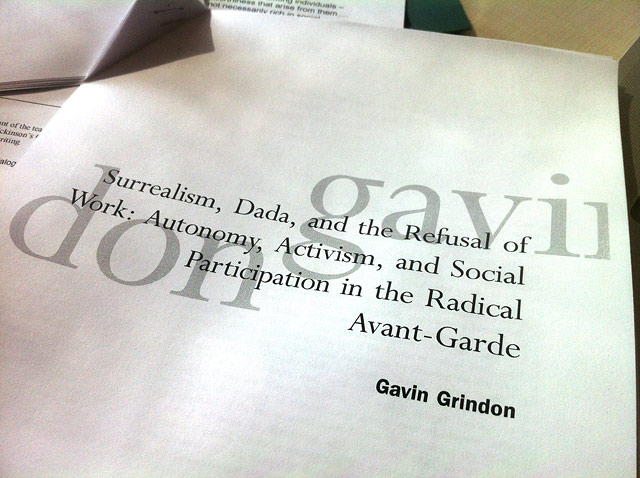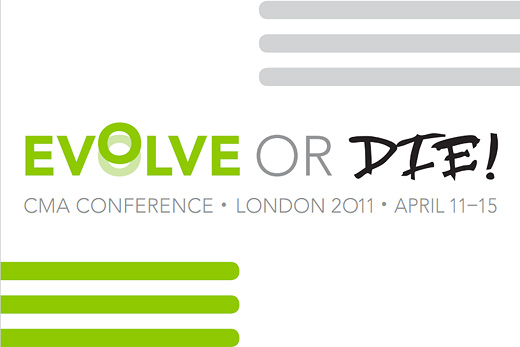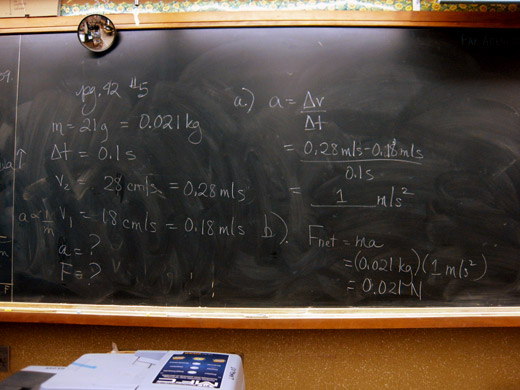Check out the full 2013 – 2014 NS artist line-up at www.acwr.net/ns
The Social Practice Workbook – Artist Talk with Jen Delos Reyes (watch it online now!)
Jen Delos Reyes–a Portland-based artist and educator–has curated an exhibition here at Civic Space called The Social Practice Workbook. This exhibition is a collaborative effort between students of Portland State University (PSU) and takes the form of an assemble-it-yourself display of short writings and assignments from PSU’s Art & Social Practice MFA Program. Jen took the time to supplement her exhibition with an artist talk held at The University of Windsor’s School of Visual Arts today.
The entire talk can be viewed below and on our YouTube channel.
Surrealism and Refusal – Gavin Grindon
For some artists, the systematic self-criticism of art meant autonomy-as-a-value comes to stand for something other than the production of art objects. The working role of the ‘artist’ is thrown into crisis. Avant-gardes often did not conceive of themselves as a vanguard of artists leading the way, but as artists refusing the role of artists.
Evolve or Die: CMA Conference
I’ll be heading up to London, Ontario on Thursday, April 14 to speak on a panel with some incredible people as part of the Canadian Museum Association’s Annual Conference, appropriately titled, Evolve or Die!. I’m pumped to get to reconnect with Andrew Hunter and Andrew Lochhead, and to finally meet Yael Filipovic. Not familiar with these folks? You should be.
The details:
The Social, Political, and Local: The Power of Place
Moderator: Yael Filipovic, Foreman Art Gallery, Bishop’s University
Panelists:Andrew Hunter, Dodolab & Proboscis; Justin Langlois, Broken City Lab, Andrew Lochhead, Workers Arts and Heritage Center
Embracing new roles, forging new relationships, and charting new territory on the notion of place has proven to facilitate new kinds of relationships with communities that allow for increasingly socially responsible work within our institutions. Through a dialogue that explores the critical relationships, the panelists have taken with the notion of place, this discussion will engage in unpacking the politics at play in work engaged with local spaces, communities, and histories and how this plays a part in a broader role we may be asked to play as facilitators of social change at local and regional levels.
And, afterwards, we’ll be meeting with some folks in London who are working to make that city better — will be a great day!
How we use this site for research (in-part)
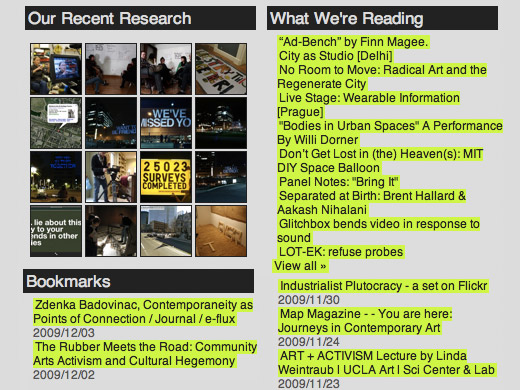
Over the last week or so, we’ve added a few new things to our little website here. It’s funny because there’s a lot of research that goes on in the background, in terms of things we come across and don’t blog about, ideas that we email to one another, and documenting our process and posting it alongside that of other people’s works, which at times just sort of goes into the background archive.
Speaking with Tom Lucier earlier this week made us realize the distance between our blog-based practice and what we do in real space. That is, how we continually try to use the tools available to us online to communicate and network and collect information, and then the at times lo-tech initiatives we work with on an ongoing basis. Certainly there are times when these cross, but it just got me thinking about how important it is (at least from our perspective) to continue to keep the conversation going (at least amongst ourselves) online and continue to share what we’re reading and looking at during all that time in the week that we don’t get to get together.
So, I thought I’d make a quick post on some of the things I’ve added to the site as of earlier this week. In the right-most column, just past the contact information, there are now thumbnails of our most-recent posts on our research, there’s a series of links to bookmarks from my delicious page, and then there’s the links to the starred items from my Google Reader … with those kinks worked out, we’re going to try to plug-in feeds from other BCL research fellows when available.
Sometimes it’s difficult to find the time to post more than a few times a week, but I know I’m continually trying to make myself notes and links to things that might relate to an idea I had, or a note about something I should revisit when I have more time. For me, seeing all of these things in one place is helpful and to have it alongside all of the other things we’re continuing to talk about just seemed to make sense.
Pop-Up Education
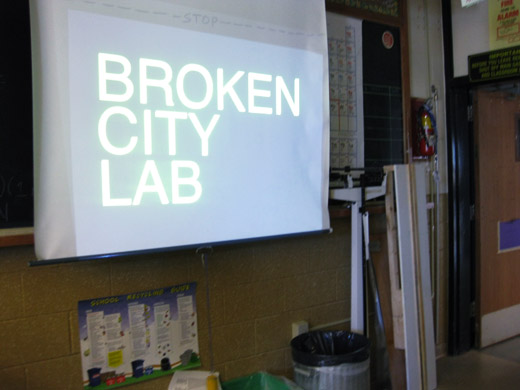
Not that it’s something we haven’t talked about before, but GOOD just wrote about yet another iteration of this kind of alternative community pedagogy, this time calling it “pop-up education.”
Basically these ideas work like this: teach something you know to other people in an alternative space. Perhaps a main distinction in the pop-up education idea compared to what we’ve talked about before is that this kind of pedagogical experience should occur during regular wait-times, the brief post gives the example of teaching safety skills while waiting in the DMV.
So, how many times will we write about this before we initiate something? Well, maybe instead of making a list of skills we have and could share, maybe creating a needs-based list would work.
For example, I would love to learn how to cast metal, do basic programming for the iPhone, and get a better general sense of the narrative of the history of the city. What might you want to learn? Want to trade knowledge?
